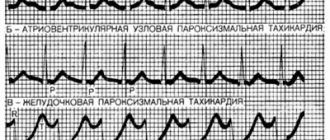General information
Fatigue is the body's response to prolonged exposure to various types of irritants.
Fatigue is a special condition that is characterized by excessive sleepiness, decreased activity, irritability, lack of attention, and memory problems. Some people are convinced: “in order to restore your strength and overcome overwork, it’s enough to get a good night’s sleep.”
It is worth noting that previously this condition was diagnosed exclusively in adults. Today it is not uncommon among children, especially among those whose parents want to raise geniuses.
There are the following types of overwork:
- mental fatigue;
- physical fatigue;
- emotional;
- nervous.
This distribution is conditional, since in practice these types are often intertwined. They can appear sequentially, following each other, or they can appear simultaneously.
How to understand that neurosis already exists? This is not difficult, as there are certain symptoms:
- Emotional instability, mood swings;
- Indecision, passivity;
- Low or too high self-esteem;
- Fear, anxiety, fussiness;
- Irritability, aggressiveness;
- Constant criticism of what is happening, touchiness and pickiness;
- Uncertainty in desires and aspirations;
- Tearfulness, suspiciousness, vulnerability;
- Obsessive fixation on problems;
- Decreased performance and concentration, increased fatigue;
- Strong reactions to external stimuli (light, noise, etc.);
- Meteosensitivity;
- Sleep disorders.
Possible reasons
Constant stress often causes overwork
Overwork cannot appear out of nowhere; it is preceded by prolonged exposure to negative factors.
- Thus, the lack of standardized work and rest will certainly lead to exhaustion. When a person works more than he rests, over time he becomes seriously overtired.
- Constant stress and a state of increased anxiety lead to the development of overwork.
- A negative atmosphere in the home circle can cause the development of overstrain not only in an adult, but also in a child.
The following factors can also provoke this phenomenon:
- poor living conditions;
- dissatisfaction with one’s job, in particular the level of income;
- problems in personal life;
- lack of a balanced diet, lack of essential minerals and vitamins;
- a negative outlook on life, a person sees everything in black terms;
- workaholism;
- intense workouts.
Symptoms of fatigue are often observed in adolescent children. They are associated with hormonal changes in the body.
Overfatigue in children is possible for the following reasons:
- excessive workload at school or preschool;
- lack of proper diet;
- an overabundance of attended sections that are exhausting both physically and emotionally;
- lack of proper daily routine
- the presence of constant conflicts in the family or at school.
It is important to know that even an infant can experience fatigue. The reason for this may be the lack of harmonious conditions that the baby’s mother should take care of.
Diagnosis of a patient with increased irritability
A considerable list of ailments that can lead to overstimulation of the nervous system complicates the examination process and excludes self-diagnosis. A comprehensive examination of the patient includes laboratory tests of urine and blood, MRI, and ECG. Sometimes an ultrasound may be prescribed to examine internal organs.
A visit to a psychotherapist is necessarily included in the diagnostic complex aimed at establishing the causes of irritability. During special testing, the characteristics of the patient’s thinking and temperament, the properties of his memory and other mental parameters are revealed, which help to clarify the diagnosis.
Characteristic manifestations
Common signs of any overwork include:
- frequent colds;
- memory impairment;
- change in body temperature;
- blood pressure problems;
- the appearance of apathy;
- constant feeling of fatigue;
- insomnia;
- decreased capacity;
- changes in emotional terms, in particular the appearance of irritability.
Signs of overfatigue in children include:
- irritability;
- tearfulness;
- excessively long daytime sleep;
- deterioration of appetite or its complete absence;
- increase or decrease in temperature;
- sleep problems;
- appearance of hysterics.
The physical type is characterized by gradual development. Initially, the person experiences slight fatigue and minimal soreness in the muscle area. Often these signs remain without due attention. The individual continues to lead an active lifestyle and goes in for sports. In the absence of timely recovery, the situation begins to worsen, marked by the following signs:
- body temperature rises up to 39 degrees;
- problems with sleep appear;
- there is pain in the chest;
- muscle pain becomes more intense;
- apathy appears;
- Appetite decreases, followed by body weight;
- characterized by the presence of tachycardia;
- blood pressure may increase.
This type is often perceived by people as ordinary fatigue. At the same time, the person is convinced that he will be able to recover after rest. But in particularly advanced cases, special therapy cannot be avoided.
Among the early symptoms of mental fatigue are:
- pain in the head that occurs from time to time, for no apparent reason;
- overwhelming fatigue;
- pale complexion;
- persistent bruises appear under the eyes;
- changes in blood pressure;
- insomnia;
- redness of the sclera of the eyes.
When running, the following are attached:
- memory problems;
- nausea and even vomiting;
- nervousness;
- problems with concentration;
- severe irritability.
You should know that this type has three stages of development.
- Easy stage. There are signs of overwork such as problems falling asleep and inability to recover after a night's sleep.
- Second: problems arise with the digestive organs, appetite worsens, the color of the skin and eyes changes, men may experience a decrease in potency, and women may experience menstrual irregularities.
- The third is manifested by neurasthenia, excessive excitability and irritability, and an almost complete lack of night sleep.
Emotional type
Emotional is also destructive. It is provoked by excessive stress, leading to severe emotional burnout, which in this case is considered as a defense mechanism.
It appears as follows:
- the presence of an inhibited reaction;
- apathy, lethargy;
- decreased tactile sensitivity;
- possible weakening of taste buds;
- decreased emotionality;
- mood swings;
- irritability;
- desire to be alone with oneself;
- presence of restless sleep, possible nightmares and insomnia.
The emotional type of overwork is a dangerous phenomenon, often leading to a depressive state.
This type can be caused by a difficult situation in the family, the presence of intense nervous work, serious shocks, and an excess of both negative and positive emotions.
Excessive irritability and increased nervousness may be signs of nervous fatigue
Nervous fatigue is manifested by a violation of the transmission of impulses in nerve cells. The following manifestations are noted:
- headache;
- general weakness;
- constant drowsiness;
- deterioration of tactile sensitivity;
- muscle fatigue.
Such overstrain can be provoked by: nervous work, stress, negative effects on sensory organs, in particular constant noise, unpleasant odors. Contributing factors may include increased anxiety and the presence of phobias.
Nervous exhaustion turns into nervous tics, neurosis, and asthenic state.
What symptoms may accompany increased fatigue?
Anyone can identify the state of fatigue. Quite often it does not pose any danger and is explained by fairly simple reasons. If the feeling of severe and rapid fatigue is accompanied by other accompanying symptoms and, moreover, does not go away for a long time, you should consult a doctor for a detailed examination.
In most cases, the causes of fatigue, drowsiness and other similar symptoms are:
Diseases of an endocrine nature usually manifest themselves as excessive sweating, weakness, and fatigue. If at the same time you also regularly experience constipation or other stool disorders, your body weight has unexpectedly and sharply increased, most likely we are talking about hypothyroidism, in which the thyroid gland does not perform the functions assigned to it to a sufficient extent. In addition, characteristic symptoms of this disease are chilliness, excessive apathy and drowsiness, as well as impaired sensitivity in the upper and lower extremities.
If hypothyroidism is diagnosed in most cases in women, then another common endocrine disease - diabetes mellitus, on the contrary, in most cases affects men.
Often, patients with diabetes are additionally diagnosed with recurrent thrush, pustular and other skin diseases.
Fatigue, irritability and drowsiness as signs of nervous system pathology
As a rule, this condition is not dangerous to our health. It is quite easy to get rid of it with the help of a course of adaptogens of plant origin, for example, eleutherococcus, Rhodiola rosea, lemongrass, sea buckthorn, ginseng, ginger, mumiyo and so on.
If necessary and if certain diseases are suspected, other examinations may be prescribed.
Carefully monitor your condition and do not ignore the signals given by the body. Be healthy!
mjusli.ru
What to do
In particularly advanced cases, you cannot do without the help of a specialist.
In the presence of such a problem, an integrated approach is mandatory. Initially, you can seek help from a therapist, who will already redirect you to either a neurologist or a psychotherapist. So therapy may include the following approaches:
- availability of auto-training;
- relaxing massages;
- taking vitamin complexes;
- correction of nutrition, which should be nutritious and regular;
- the presence of an optimal level of physical activity, in particular physical therapy;
- active walks at least one and a half hours a day;
- taking special baths, in particular oxygen, vibration, pearl or pine;
- Taking a shower, depending on the specific fatigue, both contrast and hot showers can be prescribed.
Medicines can be prescribed in very severe cases and only by a doctor.
Precautionary measures
As with any disease, it is better to prevent the development of fatigue than to suffer from its course, thinking about how to overcome it. To do this, you will need to adhere to certain rules.
- You shouldn’t push yourself at work and be a workaholic. Be sure to dedicate your weekends to rest, take a vacation, spend it with your family, and not at home with work papers.
- If your profession involves physical activity, then when you come home, be sure to engage in mental activity. If your work involves intellectual activity, then do not forget about daily physical activity.
- Allow your body to relax. This could be massage sessions, a visit to the sauna or bathhouse, or spiritual practices such as yoga and meditation. It would also be useful to relax with the help of aromatherapy, taking a bath with aromatic oils.
- When the first signs of overwork appear, it is unacceptable to try to relax with the help of alcohol, since the entry of toxic substances into the body will further aggravate the situation.
- Try to avoid stressful situations, isolate yourself from negative influences.
- When going to bed, do not watch tragic films or listen to catchy music. The last hours of your waking hours should be relaxing.
- Remember not to overeat before bed, or drink caffeine-containing drinks.
- It is important to pay attention to external factors:
- regularly ventilate the room you are in;
- go for a walk every day, even if the weather outside is bad;
- pay great attention to good nutrition, the presence of all food groups in the diet;
- Manage your time wisely, setting aside hours for rest and activity;
- It is important to maintain healthy sleep, sleep at least 8 hours a day.
Now you know how to get rid of any overwork. It is important to understand that if you drive yourself to a state of exhaustion, you harm your entire body, causing irreparable damage to your health. There is no need for such sacrifices. Learn to plan your life, alternate time for rest and active activities, do not overwork yourself.






